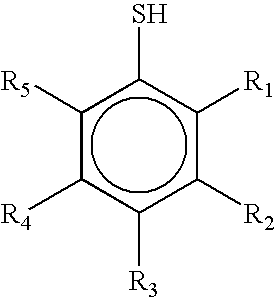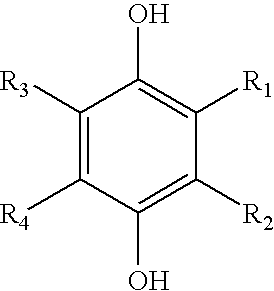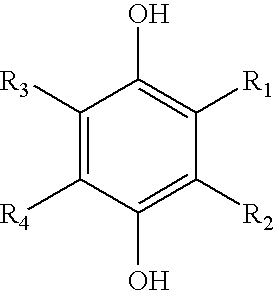Golf ball comprising a core layer having a hardness gradient and trans gradient
a core layer and golf ball technology, applied in the field of golf balls with cores, can solve the problem of time-consuming process
- Summary
- Abstract
- Description
- Claims
- Application Information
AI Technical Summary
Benefits of technology
Problems solved by technology
Method used
Image
Examples
Embodiment Construction
[0019]The golf balls of the present invention may include a single-layer (one-piece) golf ball, and multi-layer golf balls, such as one having a core and a cover surrounding the core, but are preferably formed from a core comprised of a solid center (otherwise known as an inner core) and an outer core layer, an inner cover layer and an outer cover layer. Of course, any of the core and / or the cover layers may include more than one layer. In a preferred embodiment, the core is formed of an inner core and an outer core layer where both the inner core and the outer core layer have a “soft-to-hard” hardness gradient (a “negative” hardness gradient) radially inward from each component's outer surface towards its innermost portion (i.e., the center of the inner core or the inner surface of the outer core layer), although alternative embodiments involving varying direction and combination of hardness gradient amongst core components are also envisioned (e.g., a “negative” gradient in the ce...
PUM
 Login to View More
Login to View More Abstract
Description
Claims
Application Information
 Login to View More
Login to View More - R&D
- Intellectual Property
- Life Sciences
- Materials
- Tech Scout
- Unparalleled Data Quality
- Higher Quality Content
- 60% Fewer Hallucinations
Browse by: Latest US Patents, China's latest patents, Technical Efficacy Thesaurus, Application Domain, Technology Topic, Popular Technical Reports.
© 2025 PatSnap. All rights reserved.Legal|Privacy policy|Modern Slavery Act Transparency Statement|Sitemap|About US| Contact US: help@patsnap.com



